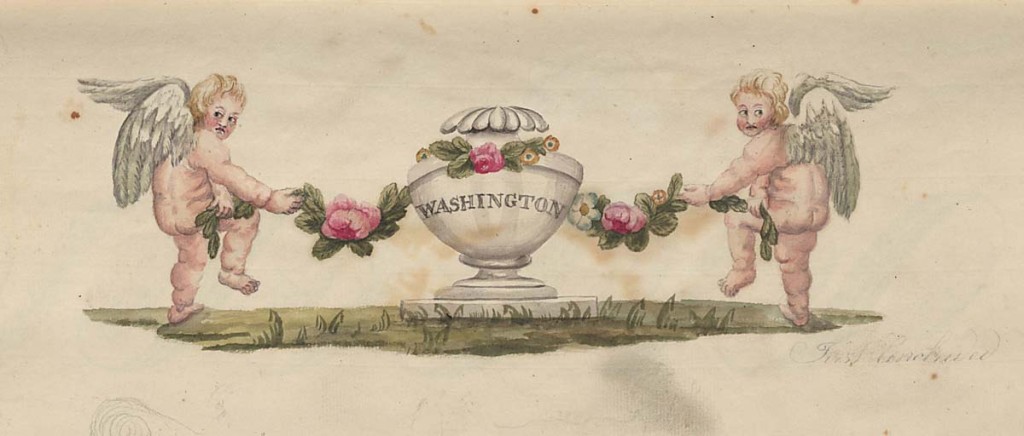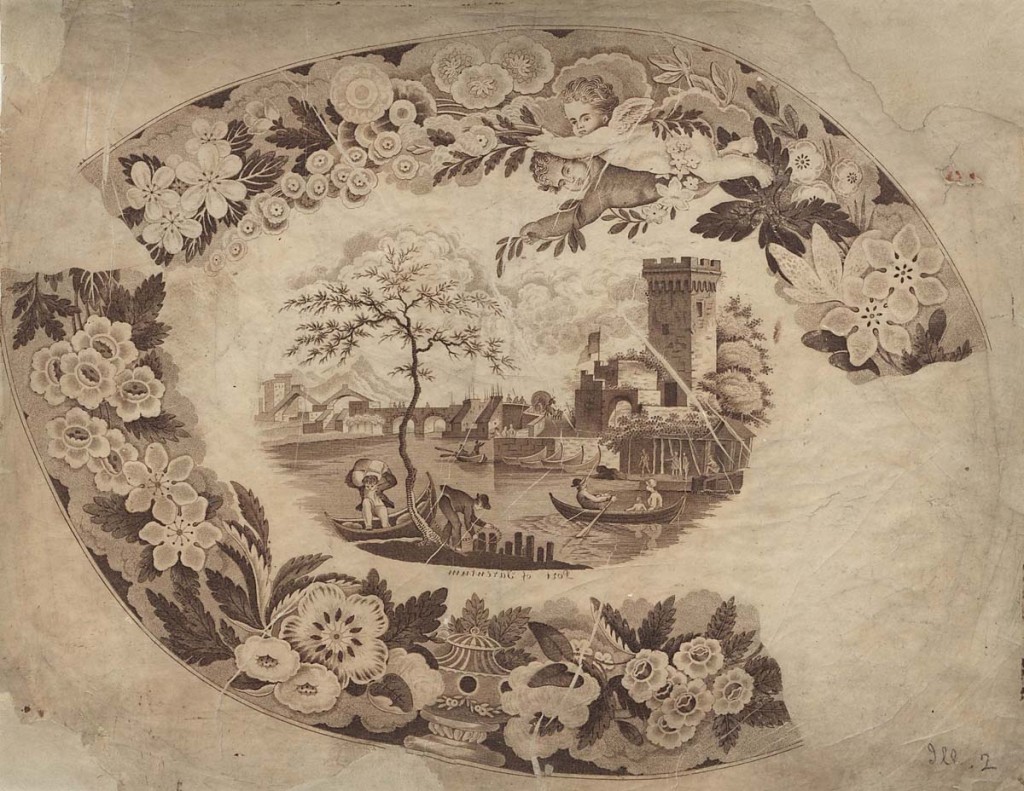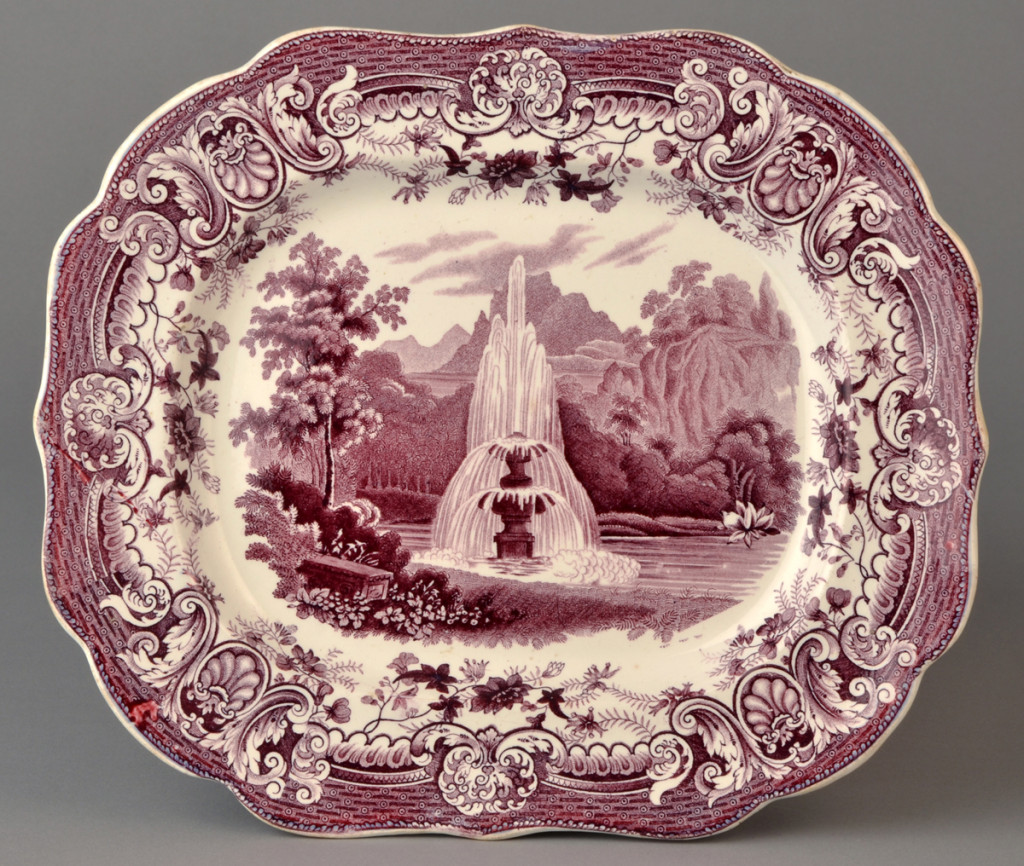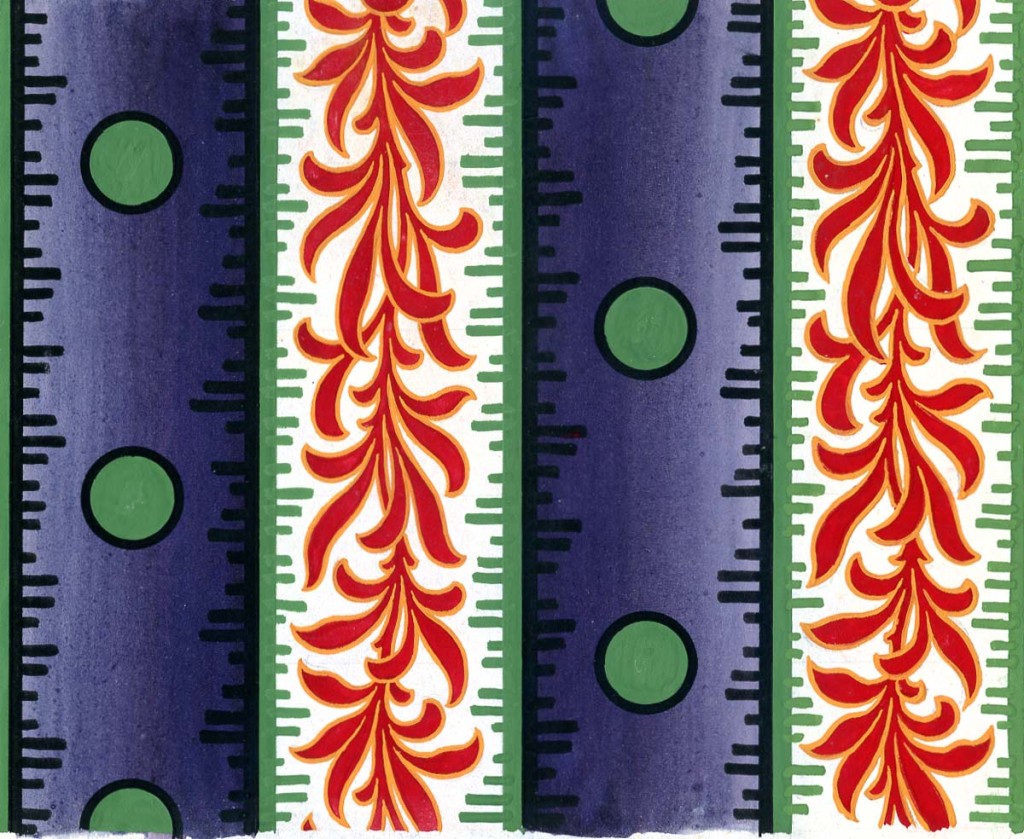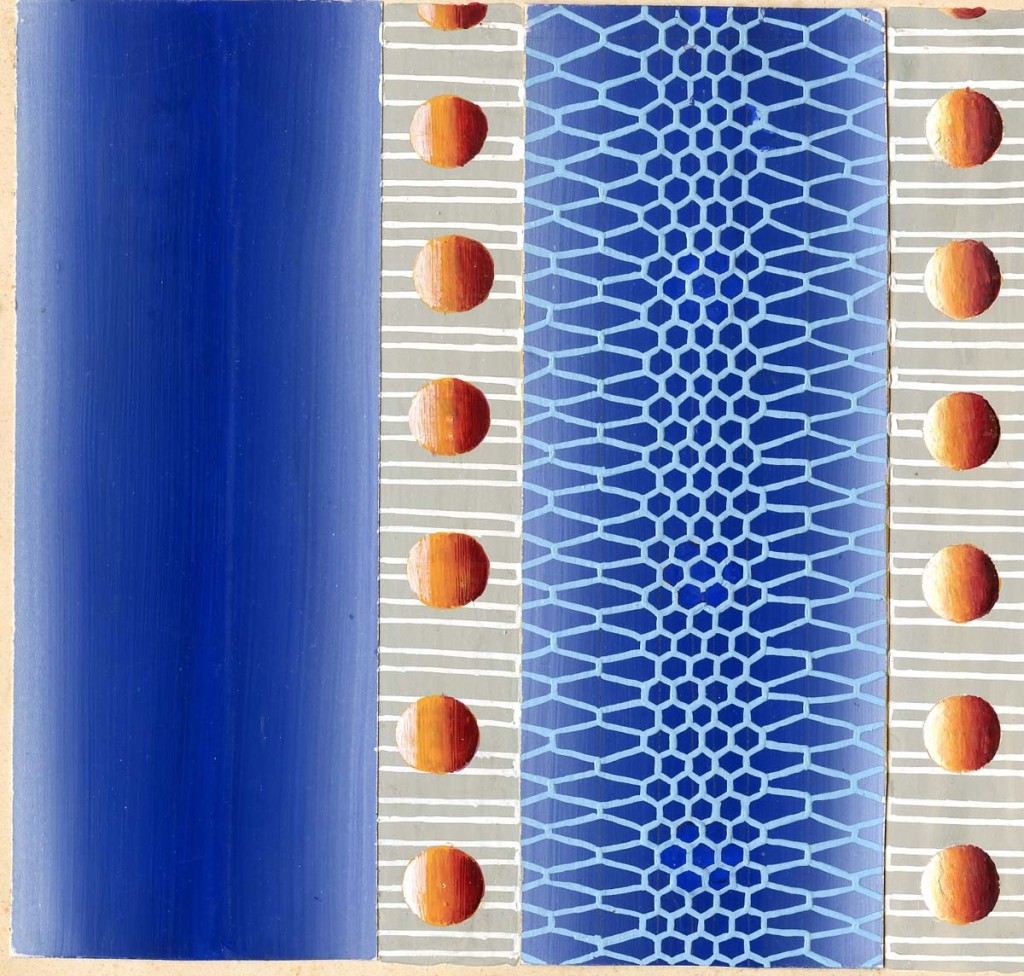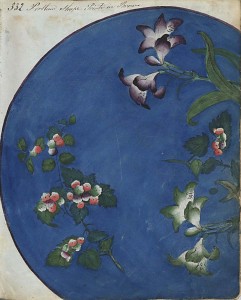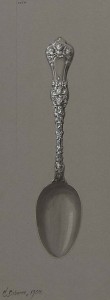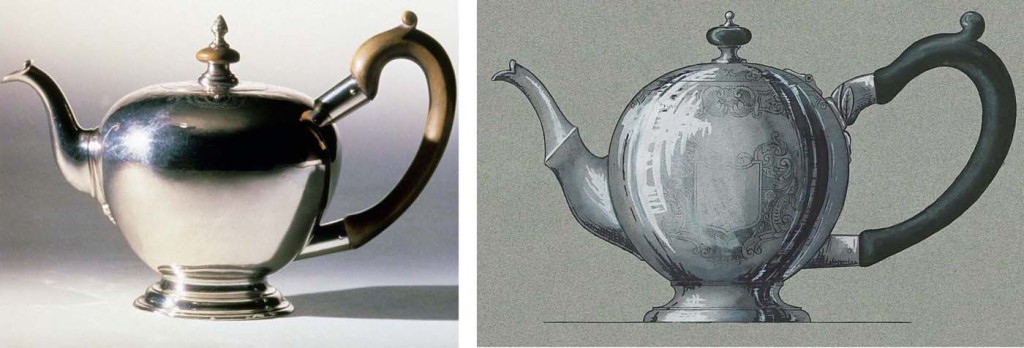Original Artwork
Even rarer than printed and published design books and periodicals are the original sketches and working drawings of artists and craftsmen. These provide clues about how artisans were influenced by the past and yet incorporated imagination and innovation.
Painted furniture drawing book
Made by Christian M. Nestell
New York, New York; 1811–12
Graphite and watercolor
84×89 Downs Collection, gift of the Friends of Winterthur
The design seen here for a painted chair is from Christian Nestell’s student drawing book. Nestell learned ornamental painting at a New York City school and later sold painted chairs in Providence, Rhode Island.
Port of Tarentum
Made by Enoch Wood & Sons
Burslem, England; about 1830
Engraving
71×166.8 Downs Collection, gift of the Friends of Winterthur
Platter
Made by Enoch Wood & Sons
Burslem, England; 1830–40
Earthenware (ironstone)
1966.0836 Bequest of Henry Francis du Pont
One of the most common methods of decorating pottery wares in England in the early 1800s was through the application of transfer-printed designs from thin tissue paper. Transfer-printed wares were rarely made in the United States, and so English ones dominated the market.
Woven textiles pattern book
France; 1840–46
Gouache and woven textiles
72×35.12, .20 Downs Collection, gift of the Friends of Winterthur
The bright colors and strong geometric designs of these textile patterns are a revelation. They were created for an unidentified French firm in the early 1840s, when France was a world center for the production of fine woven textiles. Being one-of-a-kind, pattern books for woven textile manufacturers in the 1800s are rare survivals.
Ceramics pattern book (plate design)
By Thomas Dimmock & Co.
Hanley, Staffordshire, England; about 1857
Ink and watercolor
72×307 Downs Collection, gift of the Friends of Winterthur
This volume contains the Dimmock & Co. watercolor and transfer-printed pattern designs for plates and hollow vessels. These ceramics were made primarily for the American market.
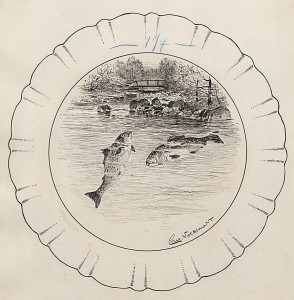 Design for Trout plate
Design for Trout plate
Made by Charles Volkmar
Menlo Park, New Jersey; about 1894
Ink on artist’s board
89×1.9 Downs Collection, gift of the Friends of Winterthur
Charles Volkmar published original designs for professional and amateur china painters in the popular American and English periodical Art Amateur. Trout was one of his designs for a large dinner service for serving fish.
Design for silver spoon
Made by Charles Osborne
New York, New York; 1904
Ink and gouache on paper
91×23.139 Downs Collection, gift of the Friends of Winterthur
British-born Charles Osborne worked as a designer of silver tablewares for the New York firms of Whiting Manufacturing Co. and Tiffany and Co. He was one of the foremost designers of silver objects at the turn of the century and patented many of his creations.
Teapot
Made by Jacob Hurd
Boston, Massachusetts; 1745–55
Silver, fruitwood
1961.0937 Bequest of Henry Francis du Pont
Design for silver teapot
Made by George Christian Gebelein
Boston, Massachusetts; about 1915
Ink and watercolor
94×1.77 Downs Collection, gift of the Friends of Winterthur
Fine examples of early Boston silver, such as this Jacob Hurd teapot, inspired the work of silversmith George Gebelein in the early 1900s. Gebelein continued Boston’s strong tradition of silversmithing and was known as the “modern Paul Revere.”
Related Themes:

